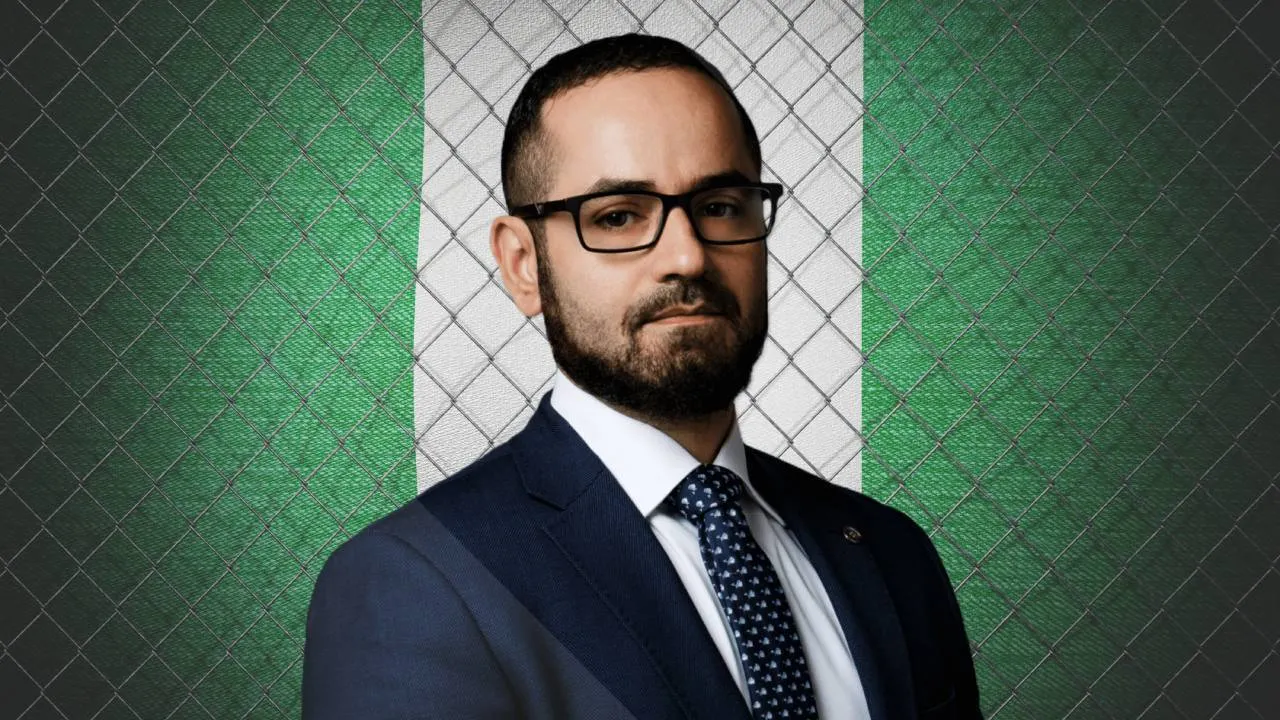In a year of dramatic crypto stories, among the most striking was that of Tigran Gambaryan, a former IRS agent and Binance executive who was detained for eight months in Nigeria on charges of money laundering.
Taking in daring escapes, courtroom collapses, and Congressional resolutions, the unfolding saga was akin to a Hollywood movie—but with very real consequences for those involved. Here’s how the story unfolded.
Gambaryan, a U.S. citizen, joined Binance as the crypto exchange’s VP of Global Intelligence and Investigations in September 2021. He brought with him a wealth of experience from a decade as a former special agent with the IRS Cyber Crimes Unit, where he’d investigated cases involving national security, terrorism financing and child sexual abuse material (CSAM), as well as taking on some of the biggest investigations in crypto to that point—such as the Silk Road corruption investigations and the Mt. Gox hack.
At the time, Gambaryan said, Binance would “work closely with our colleagues in compliance to identify criminals and refer them for prosecution.” Little could he have imagined that just a couple of years later, he himself would be in jail, facing trial on charges including currency manipulation and facilitating transfers of illicit funds.
In February 2024, Gambaryan and his colleague Nadeem Anjarwalla, Binance’s regional head for Africa, arrived in Nigeria to meet with government officials.
The country’s government, facing a currency crisis, had turned its ire on cryptocurrencies, blaming crypto trading platforms for currency manipulation.
As part of an ongoing investigation into crypto exchanges, Nigeria had demanded that Binance provide it with information on its top 100 users in the country, along with their transaction history for the past six months.
The Binance executives were aware that the venture was a risky one. Weeks earlier, Gambaryan and his colleagues had hastily left the country, concerned that they might be detained by local authorities after they were told by a local official that they should “settle” alleged tax violations or “they might not leave Nigeria.”
This time, Gambaryan assured his wife Yuki, he would “get in and get out.”
“You’re our guest now”
But on this occasion, his earlier fears were realized. On February 28, Gambaryan and Anjarwalla were detained on the orders of Nigeria’s anti-corruption agency, the EFCC. Although no charges were initially brought against them, a court order saw Gambaryan and Anjarwalla held for 14 days under the terms of a court order, which was subsequently extended.
The pair were detained in a secure compound under armed guard, with a Nigerian official reportedly telling them, “You’re our guest now.”
While the executives’ passports were confiscated, they were allowed to keep their phones.
A month later, in a dramatic development, Anjarwalla, a British Kenyan, escaped custody during a visit to a local mosque, fleeing the country using a concealed Kenyan passport—having only handed his British passport to authorities.
Following Anjarwalla’s escape, things went from bad to worse for his detained colleague. On the day Anjarwalla fled Nigeria, the country’s tax agency, the Federal Inland Revenue Service, charged Binance, Gambaryan, and Anjarwalla with tax evasion. Days later, the exchange, along with Gambaryan and Anjarwalla, were hit with charges of money laundering to the tune of $35 million by the EFCC—which suggested that Gambaryan could face charges on the exchange’s behalf.
“Blackmail”
Gambaryan was subsequently moved to the notorious Kuje prison, used to house suspected members of the Boko Haram terror group; at the time, Gambaryan’s wife accused Nigerian authorities of holding the exec as "blackmail,” while Binance issued a statement saying that he had no decision-making power at the company.
Given Gambaryan’s status as a U.S. citizen, and one who had “been a cop my whole life,” it’s perhaps surprising that the U.S. government initially dragged its heels over his plight.
Despite the presence in Nigeria of a Congressional delegation to discuss democracy and freedom at the time of Gambaryan’s detention, neither they nor the State Department initially raised the issue with the Nigerian government—with the delegation claiming to have departed Nigeria prior to receiving outreach from the Gambaryan family.
Indeed, it was several months before U.S. officials took notice of Gambaryan’s situation, during which his health worsened to the point where he collapsed in court on the second day of his trial.
By early June, efforts to secure Gambaryan’s release had ramped up. His local Representative, Rich McCormick (R-GA), joined House Foreign Affairs Committee Chairman Michael McCaul (R-TX) and 14 of their House Republican colleagues in sending a letter to President Biden. It declared that Gambaryan had been “wrongfully detained” by the Nigerian government, and urged the president to secure his release.
Days later, over 100 former federal prosecutors and federal agents wrote Secretary of State Tony Blinken, calling on the U.S. government to “step up its efforts” in Gambaryan’s case, and accusing Nigeria of denying him adequate medical care. As the Binance executive battled malaria and pneumonia, a bipartisan delegation of U.S. lawmakers visited him in prison, with Rep. French Hill (R-AR) decrying the "horrible” conditions under which he was being detained.
By July, Gambaryan’s condition had deteriorated to the point where he required a wheelchair in court, while Rep. McCormick and Rep. Hill submitted a resolution to Congress calling for his immediate release—and accusing the Nigerian government of an effort to extort his employer.
As the months dragged on, Yuki Gambaryan recounted her struggle to explain to her children where their father was. “My son saw an airplane in the sky and said, ‘Mommy, look there’s an airplane. Is Daddy on the airplane?’,” she told the Designated podcast.
McCormick accused the Biden administration of not having “done enough to bring him home,” despite the “tremendous amount of leverage” it had over Nigeria.
The U.S. government, he told Decrypt, was “not paying attention because there’s a lot of things going on this election cycle.” He also attributed the apathy around Gambaryan’s case to a crypto-related “laziness” on the part of the U.S. government, arguing that the industry is “something that’s very, very misunderstood still.”
He further suggested that the Biden administration had been “hypocritical” in failing to declare Gambaryan as a “citizen wrongfully detained by a foreign government,” in contrast to its efforts to secure the release of WNBA star Brittney Griner from Russian custody.
“We’ve gone to bat for a young, healthy individual, and we’re not going to bat for somebody who is in poor health?” asked McCormick, after Gambaryan was seen struggling to walk in footage shot in court.
It took until late October before Nigeria performed a sudden volte-face, dropping charges against Gambaryan and authorizing his release. Later that day, the U.S. Department of State announced that it had joined forces with Nigeria to launch a Bilateral Liaison Group on Illicit Finance and Cryptocurrencies, pointing to a backroom deal to secure Gambaryan’s release.
So thrilled that Tigran Gambaryan is home safe and is doing well! pic.twitter.com/KoCUiwLpId
— French Hill (@RepFrenchHill) December 10, 2024
Whatever horse-trading had taken place behind the scenes, Gambaryan was on his way home, bringing to an end the “living nightmare” experienced by him and his family.
But even as Binance CEO Richard Teng lauded the executive’s “immense strength” and looked forward to “playing a constructive role” in Nigeria’s blockchain economy, Nigerian officials said that they would continue to pursue charges against the exchange. The underlying tensions that led to Gambaryan’s eight-month detention, it appears, still persist.

